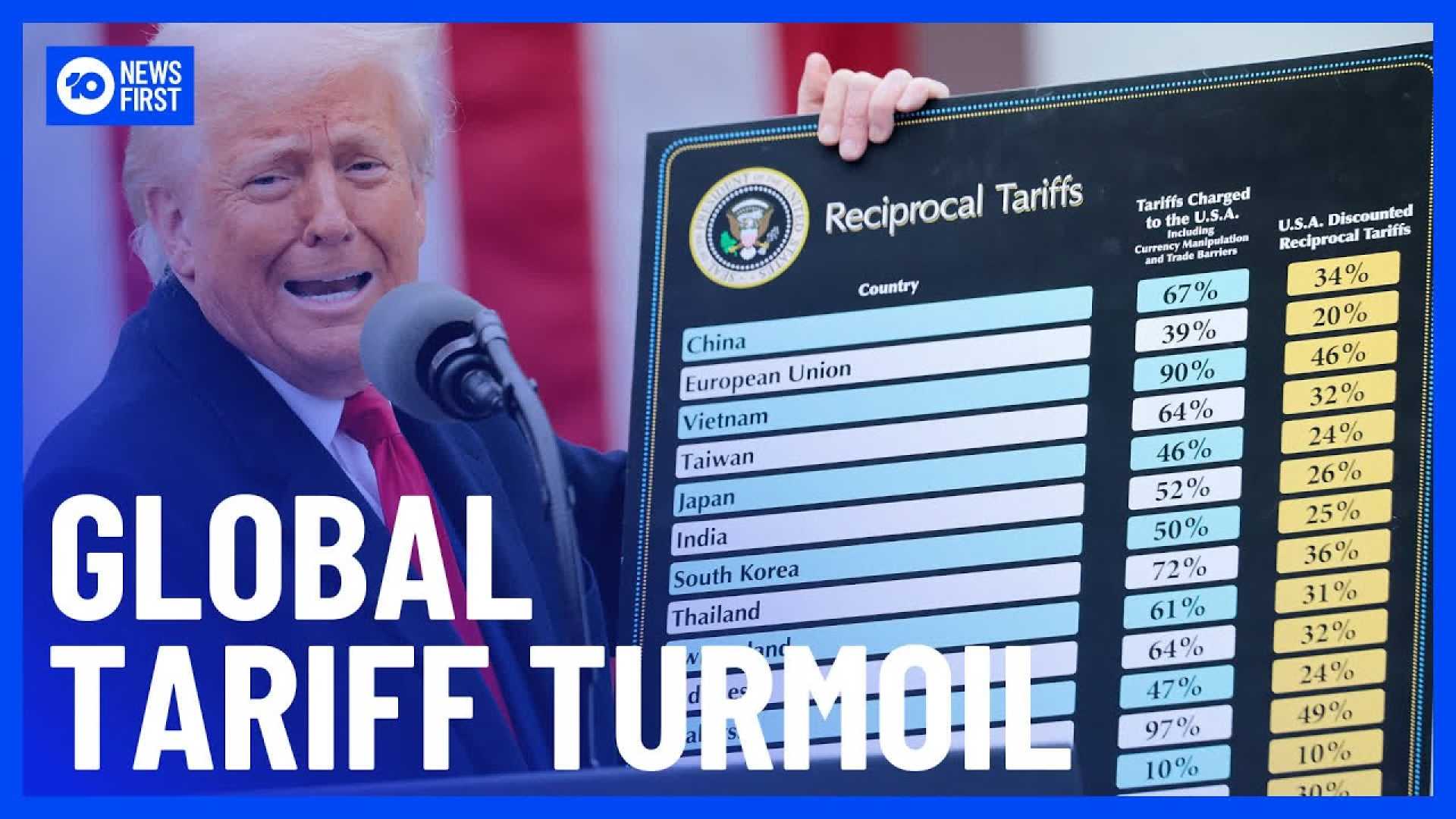Business
Trump’s Tariffs Start Soon, Markets React as Trade War Escalates

WASHINGTON/BEIJING, April 8 (Reuters) – The United States confirmed Tuesday that it will impose 104% duties on imports from China beginning shortly after midnight. This announcement comes as President Donald Trump engages in trade negotiations with U.S. allies following the stirring of a trade war that threatens to reshape economic relations globally.
Trump’s decision to levy such steep tariffs on Chinese goods has severe repercussions, with the S&P 500 index closing below 5,000 for the first time in nearly a year, marking an 18.9% decline from its recent high in February. This drop translates to a staggering loss of $5.8 trillion in market value for S&P 500 companies since last Wednesday’s tariff announcement, the most significant four-day decline since the index’s inception in the 1950s.
Despite the turmoil, the Trump administration has initiated talks with trading partners, including Japan and Korea, aiming to establish what Trump describes as ‘highly tailored deals.’ ‘We’ve had talks with many, many countries, over 70, they all want to come in,’ Trump stated during a White House event. ‘Our problem is we can’t see that many that fast.’
The planned tariffs, particularly harsh against China, come in response to countertariffs Beijing imposed last week, which Trump labeled as ‘blackmail.’ Officials in the White House, however, have opted not to prioritize negotiations with China, focusing instead on cultivating relationships with allies.
Kevin Hassett, White House economic adviser, indicated on Fox News that the administration’s strategy includes prioritizing discussions with allies rather than the world’s second-largest economy. The tailoring of trade negotiations could also factor in elements such as military and foreign aid, according to White House spokeswoman Karoline Leavitt.
As officials prepare for the tariffs to take effect, concerns about a potential recession loom large. Economic forecasts from China’s government were revised downward, signaling a potential slowdown as domestically affected companies brace for the economic fallout.
In a response to these tariffs, Canadian Prime Minister Mark Carney announced that Canada would implement a 25% tariff on select vehicles, stating that President Trump ’caused this trade crisis,’ showcasing Canada’s resolve against Trump’s aggressive trade policies.
The broader U.S. populace is beginning to feel the effects, with three out of four Americans anticipating price increases as a result of the tariffs. Retailers and manufacturers are adjusting their pricing; for instance, shoes imported from Vietnam that previously cost $155 will jump to $220 due to a 46% tariff.
Thomas Jennings, a New Jersey resident, exemplifies consumer sentiment as he stockpiles food items, saying, ‘I’m buying double of whatever—beans, canned goods, flour, you name it,’ amid fears of rising prices. However, the impact of the tariffs might not be immediate, as items already in transit before the tax takes effect may be exempt.
The market upheaval has prompted some business leaders close to President Trump to lobby for a reconsideration of the tariff strategy. In Europe, the European Commission is contemplating retaliatory tariffs on a range of U.S. goods, including potential 25% tariffs on imports like soybeans and nuts, while discussions with the U.S. government are ongoing to reach a resolution.
Reporting by Reuters newsrooms; Writing by Andy Sullivan, Matthias Williams, John Geddie, and Joseph Ax; Editing by Nick Zieminski, Lincoln Feast, Hugh Lawson, Marguerita Choy, and Matthew Lewis.












